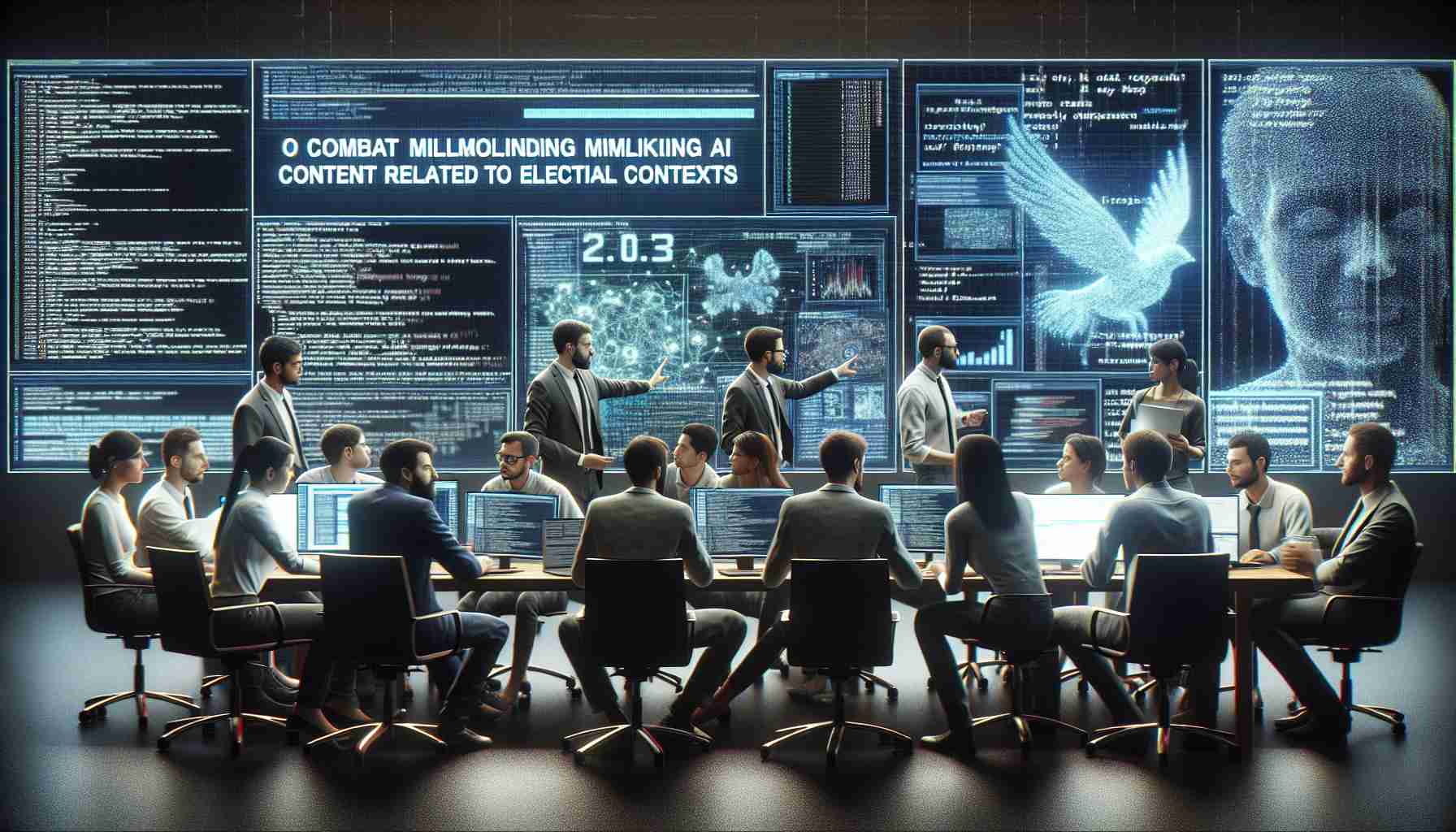A group of tech companies has united with the shared goal of preventing deceptive artificial intelligence (AI) content from interfering with global elections this year. This collaboration addresses growing concerns over the potential misuse of generative AI, which can swiftly produce text, images, and videos in response to prompts. As elections continue to play a crucial role in shaping societies worldwide, the fear of AI technology being exploited to sway public opinion has intensified.
Signatories to the tech accord, announced at the Munich Security Conference, include technology companies like OpenAI, Microsoft, and Adobe, who are actively involved in developing generative AI models used to create content. Also joining the effort are social media platforms, including Meta Platforms (formerly Facebook), TikTok, and X (formerly Twitter), who will confront the challenge of combating harmful AI-generated content on their platforms.
The agreement encompasses several commitments, such as collaborative development of tools to detect misleading AI-generated images, videos, and audio. It also includes the creation of public awareness campaigns aimed at educating voters about deceptive content and taking appropriate actions against such content on their respective services. The companies envision employing technologies like watermarking or metadata embedding to identify AI-generated content or certify its origin.
One key aspect emphasized by Nick Clegg, president of global affairs at Meta Platforms, was the significance of widespread commitment and interoperability among platforms in detecting and addressing deceptive content. Recognizing the emotional impact of audio, video, and images on individuals, the tech companies intend to focus on combating the harmful effects of AI-generated photos, videos, and audio, in addition to text-based content.
While the accord does not specify a timeline for meeting these commitments or detail the implementation strategies of each company, its value lies in the collective participation of diverse stakeholders in tackling the potential threat posed by deceptive AI content in elections. The collaborative efforts of these tech companies aim to ensure the integrity and fairness of electoral processes across the globe.
An FAQ section based on the main topics and information presented in the article:
1. What is the goal of the group of tech companies mentioned in the article?
The goal of the group of tech companies is to prevent deceptive artificial intelligence (AI) content from interfering with global elections.
2. Why is there growing concern over generative AI?
Generative AI has the ability to swiftly produce text, images, and videos in response to prompts, which raises fears of it being exploited to sway public opinion in elections.
3. Which companies are part of the tech accord?
The signatories to the tech accord include OpenAI, Microsoft, Adobe, Meta Platforms (formerly Facebook), TikTok, and X (formerly Twitter).
4. What commitments does the agreement encompass?
The agreement includes commitments such as collaborative development of tools to detect misleading AI-generated content, public awareness campaigns to educate voters about deceptive content, and actions against such content on their respective services.
5. How do the companies plan to identify AI-generated content?
The companies envision using technologies like watermarking or metadata embedding to identify AI-generated content or certify its origin.
6. What aspect is emphasized by Nick Clegg, president of global affairs at Meta Platforms?
Nick Clegg emphasizes the significance of widespread commitment and interoperability among platforms in detecting and addressing deceptive content.
7. What types of content will the tech companies focus on combating?
In addition to text-based content, the tech companies also intend to focus on combating the harmful effects of AI-generated photos, videos, and audio, recognizing their emotional impact on individuals.
8. Does the accord specify a timeline for meeting the commitments?
No, the accord does not specify a timeline for meeting the commitments or detail the implementation strategies of each company.
Definitions:
– Generative AI: AI technology that can swiftly produce text, images, and videos in response to prompts.
– Misleading AI-generated content: Content created by AI that aims to deceive or manipulate public opinion.
Suggested related link:
– Munich Security Conference
The source of the article is from the blog macholevante.com

